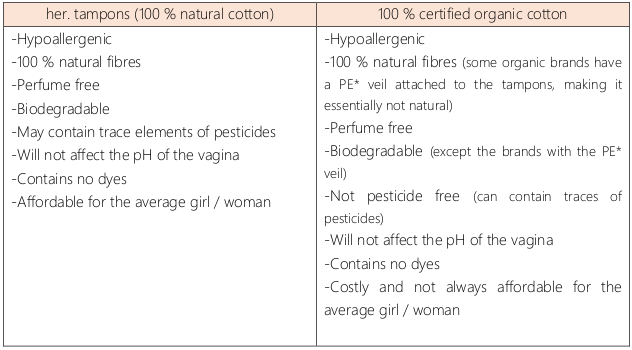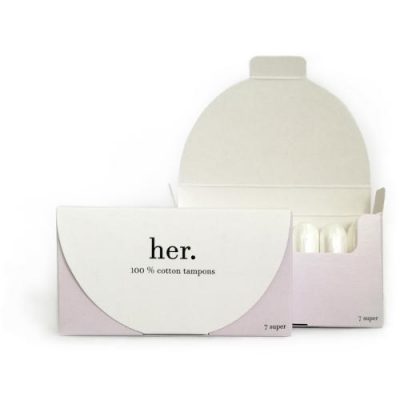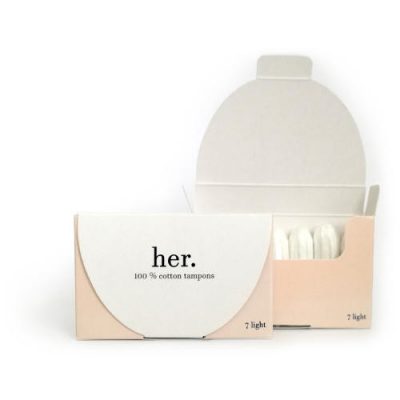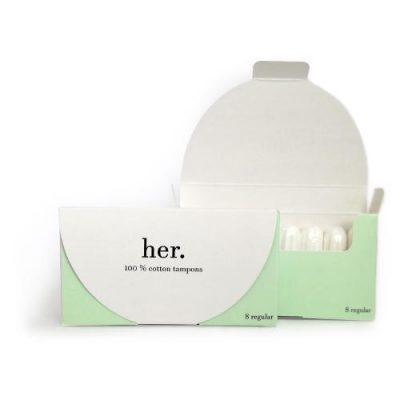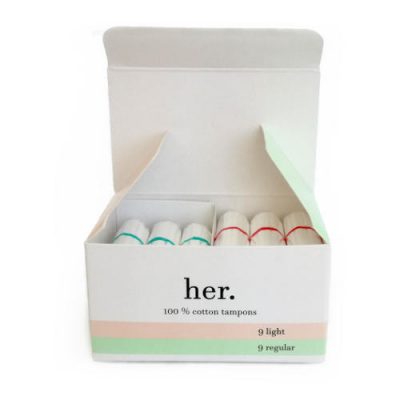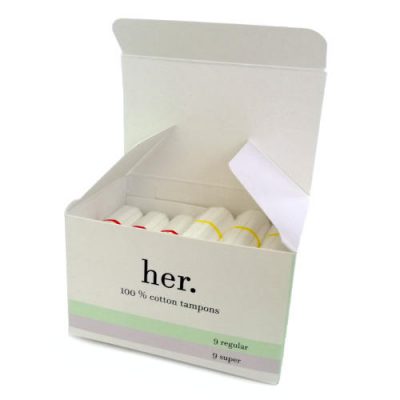
Mainstream tampons are filled with synthetic materials such as viscose and rayon (heavily processed derivatives wood fibres). Many times, it’s covered in a PE (plastic) veil and the string is dyed.
This can cause dangerous chemicals to leach into our bodies and the synthetic fibres are engineered to have super high absorbencies, creating pH unbalances in the vagina that can cause infections.
This was the inspiration for starting the her. tampon brand with the mission to provide an affordable and natural tampon alternative to the average girl/woman.
Why natural and not organic?
her. tampons were developed to provide individuals who cannot afford the expensive organic brands, a chance to go natural.
